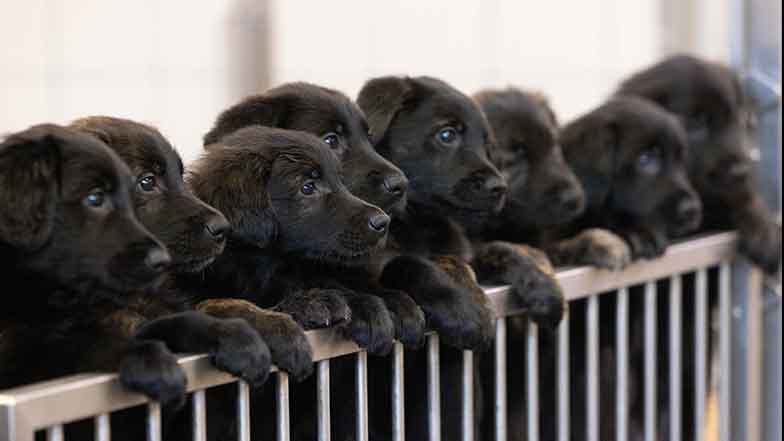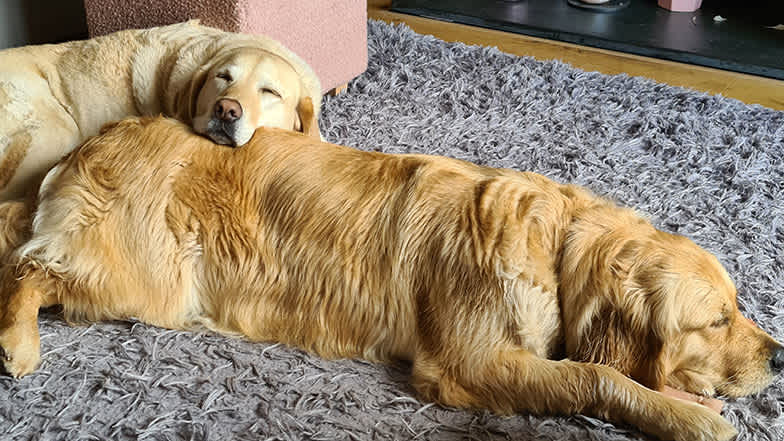Guide Dogs’ Canine Science Team is trialling a new way of understanding puppy personalities. The project, called Puppy Cognition, assesses a seven-week-old puppy’s reactions to a set series of games, objects and human interactions, called tasks.
Across the six tasks, the puppies will experience new items, such as an upturned open umbrella, a reflective metal sheet and an interactive cat toy. The tasks also look at their response to a person talking and see if they can problem-solve little challenges.
There is no ‘pass’ or ‘fail’ in any of the tasks for a puppy. Instead, the team are interested in understanding how puppies respond, and how they engage in the tasks. In-depth behaviour analysis from videos of the assessments is undertaken using an ethogram. This is so the Canine Science Team is able to look at a range of different behaviours a puppy shows.
Similar tasks and games are undertaken by other assistance dog organisations in America and have been specifically designed to be fun and interesting to puppies of this age. Puppies are continually monitored throughout the assessments, however in the unlikely situation that a puppy shows any signs of being uncomfortable, the assessment does not go ahead as the welfare and wellbeing of our puppies is paramount in all we do.
The Canine Science Team is aiming to assess more than 600 puppies over the next year. The data they collect will be kept and referred to as the puppy grows up, with some pups returning at a year old to be assessed again. This data may also be combined with additional behaviour information collected throughout their lives and also with genomic information, so we can hopefully understand more about whether certain genes can influence temperament.

"Puppy Cognition is an exciting new way of gaining a greater understanding of our guide dog puppies at a young age. We are right at the start of this project, but we hope that in the future, the data we collect will give us an idea of how a puppy’s personality will develop in later life and even what personality traits are heritable throughout generations of our guide dogs."
Dr Helen Whiteside, Chief Scientific Officer at Guide Dogs

Dr Helen Whiteside, Chief Scientific Officer at Guide Dogs adds "The more we try and understand our puppies the better; they are all individuals and giving them support tailored to their specific needs will help set them on the path to becoming happy, healthy guide dogs for people with sight loss."


